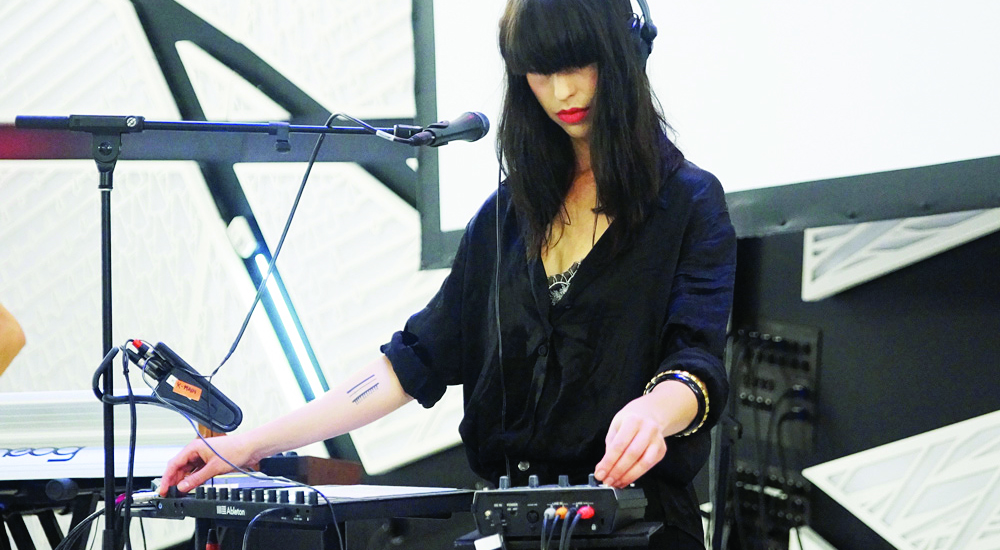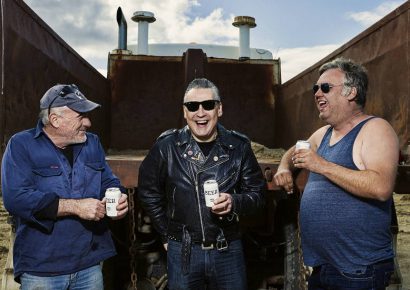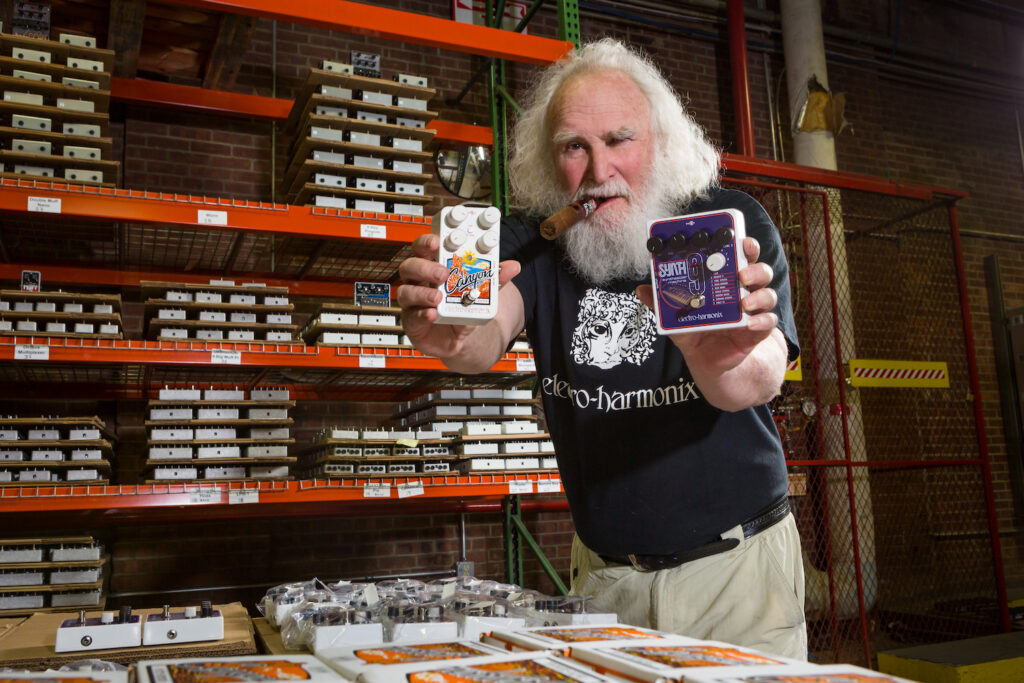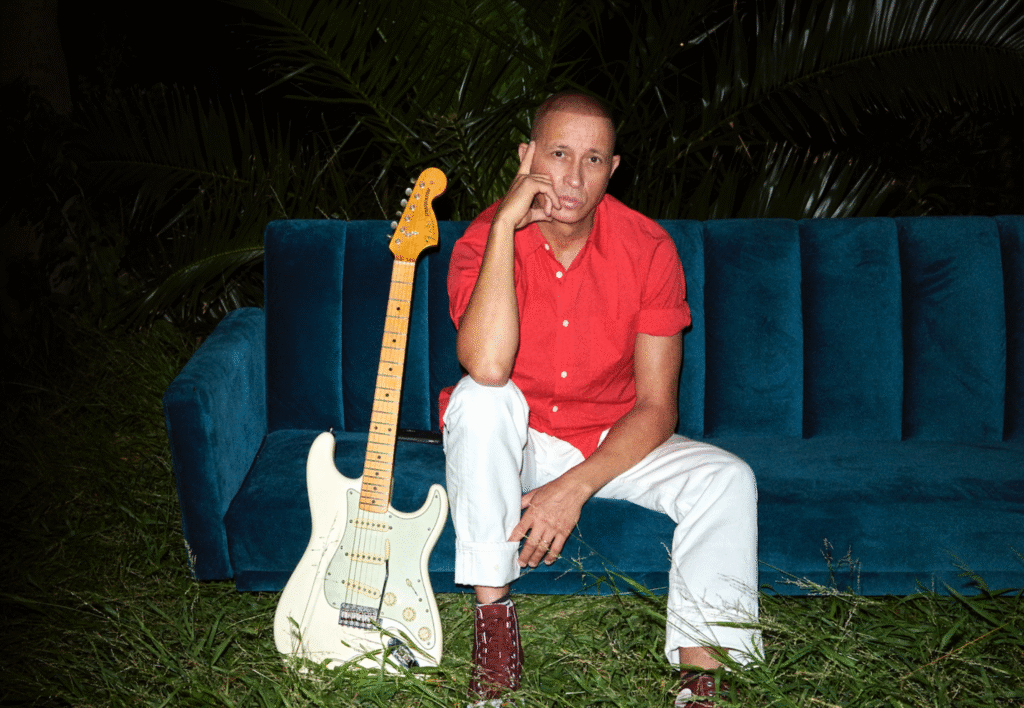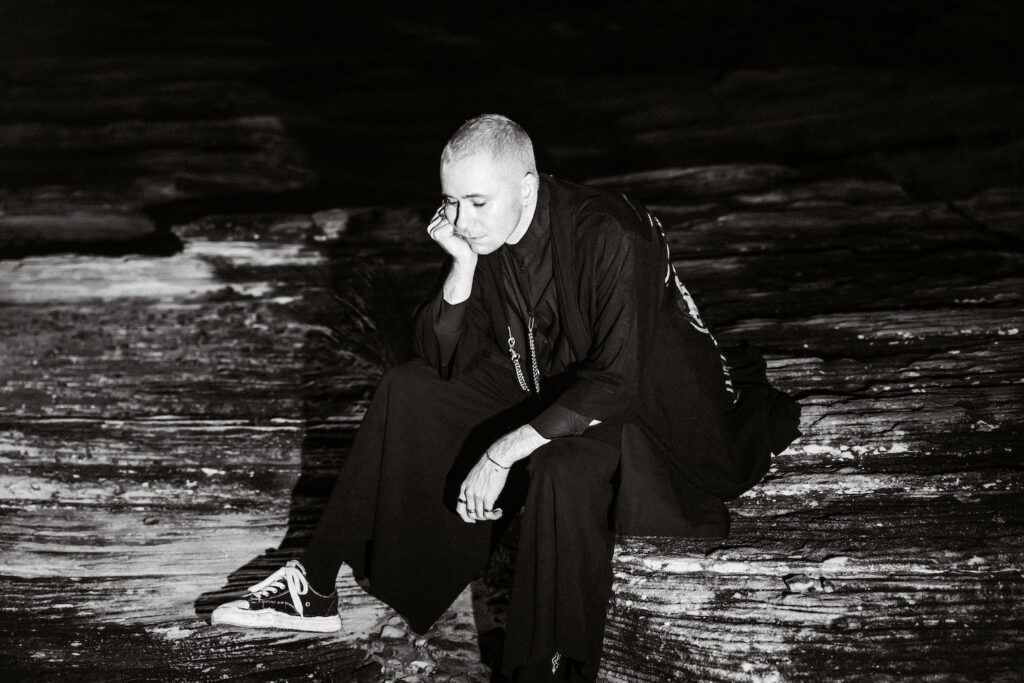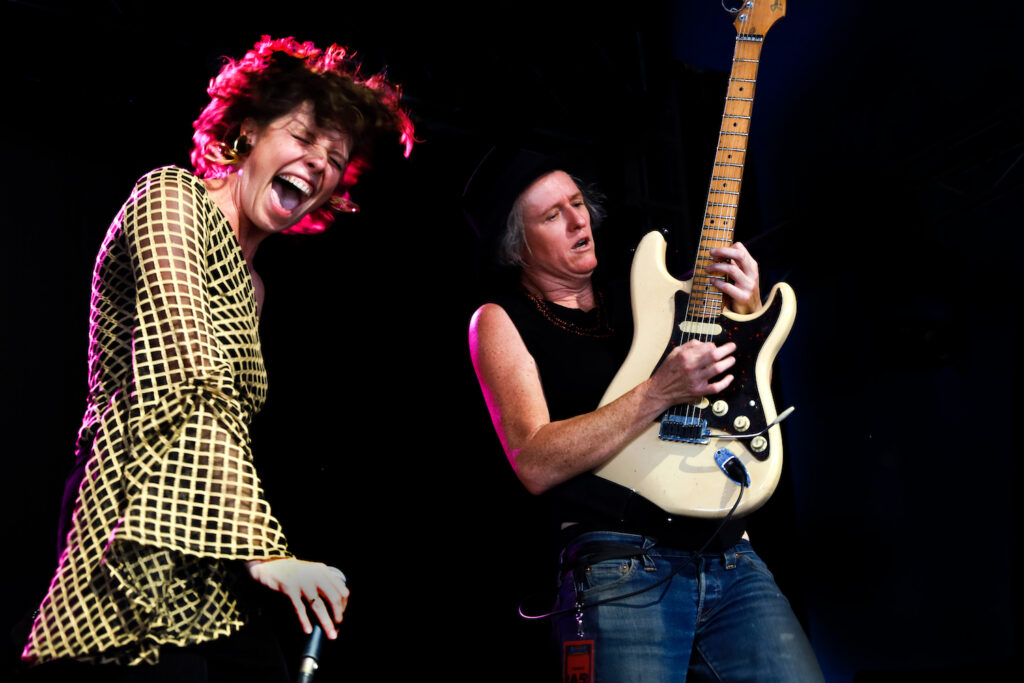“I definitely think the work you create is often a product of your environment and not just external physical environment, but internal as well. An emotional environment,” she says. “New York is a very bold city. I think in a way, it led me to establish a real independence here and that meant starting my own studio in my apartment. I live in the centre of Manhattan, so I’ve been influenced by the stimulus of the whole city and it feeds into my day. I think it’s meant that I’ve been more confrontational with myself as well. I’m facing up to more of my own life and learning to write more about my experiences from a more direct place, because the city forces you to do that and you have to have a strong sense of who you are to get by here.”
Kimbra has been busy crafting her third album, Primal Heart. The record feels like a focused effort in creating grooves, beats and layers that best serve each individual song, completely sidestepping any decorative production or guest features. Much of this can be put down to the fact that each basic track began with the artist alone in her studio, where she surrounded herself with the equipment that would best achieve the sound she was after.
“It felt like a moment to really put my stamp on my sound,” says Kimbra. “One of the first proper synthesisers I bought was Prophet [Dave Smith Prophet 6] and that is all over my new record. I bought a Wurlitzer and started getting really into playing bass, invested in great speakers. More than anything I have my collection of drum machines that I would program beats on so that I had these go-to sounds that would inspire me always. I think that sense of independence has kind of come through in my confidence as a producer and a writer when you have your own space to work in.”
After working on the tracks using MPCs and Native Instruments Maschine, Kimbra then went to LA to collaborate with producer John Congleton, who added further live instrumentation and helped to provide focus. “A lot of the time my demos would be a little too complicated, there’d be too many ideas,” she explains.
“John really pushed me to bring my vocals out of everything, stop crowding things with little details. He had that punk rock background where he wants to go for the thing that feels, I mean, primal; that fundamental feeling that hits hard. A lot of those songs that we think about that are just so damn exciting to listen to, someone wasn’t flouncing around for days nailing the hi-hat pattern. So I think it comes from someone being there on the sideline at all times to keep bringing that to my attention.”
It’s no wonder Congleton’s instincts were to not let the production distract from Primal Heart’s personal narrative, as the songs themselves are as emotionally transparent as Kimbra has ever sounded. “Every record’s a reaction to the last, right? It just didn’t excite me to think about making another record of psychedelic sonic intrusions every second,” she says, referring to 2014’s The Golden Echo.
“I just finished my second trip to Ethiopia and spent time with this woman who opened my heart to a capacity for love that I didn’t even know existed within me. I saw this courage and strength in them and in the world around, and in my own life I was confronting a lot of pain. I’m not an entertainer that just jumps up and puts on a monkey suit. With maturity and growth comes a courage to speak to the heart of things, and I think that’s starting now for me as I get older.”
Bucking tradition, Kimbra has been touring ahead of the album’s release with a stripped down band of two additional players and an array of gear that she laughingly refers to as her “spaceship”. Part of the point of the new setup is to not only replicate the sound of Primal Heart, but to allow Kimbra greater ability to improvise and direct the flow of the performances from night to night. One of the key tools she uses for this is the Korg Kaoss Pad, which allows her to manipulate the sound with her hands whilst singing.
“I discovered the Kaoss Pads on The Golden Echo,” she says. “Anytime someone had laid down a cool part on the piano or Wurlitzer, I’d want to make it more vibey. When I was setting up my studio I thought, ‘What would it be like to run my voice through it?’ Because my hands are such a big part of how I shape sound, I was then able to use them to manipulate the voice on the fly.
“I work with Ableton Push live, so that gives us a lot of freedom to just balance between different triggers and change the tempo up of songs on the fly, just be really intuitive. Everything is sculpted in a way to make you viscerally feel something, and the way my voice is now enveloping the space with the use of all these amazing manipulators, it’s able to resonate in a new way. I’m not playing over a super loud drummer, I’m now controlling the beats and the voice, and that aspect is quite freeing, because in a way it seems like there’s actually more room for these songs to resound in the space.”
Primal Heart is out Friday April 20 via Warner Music.
